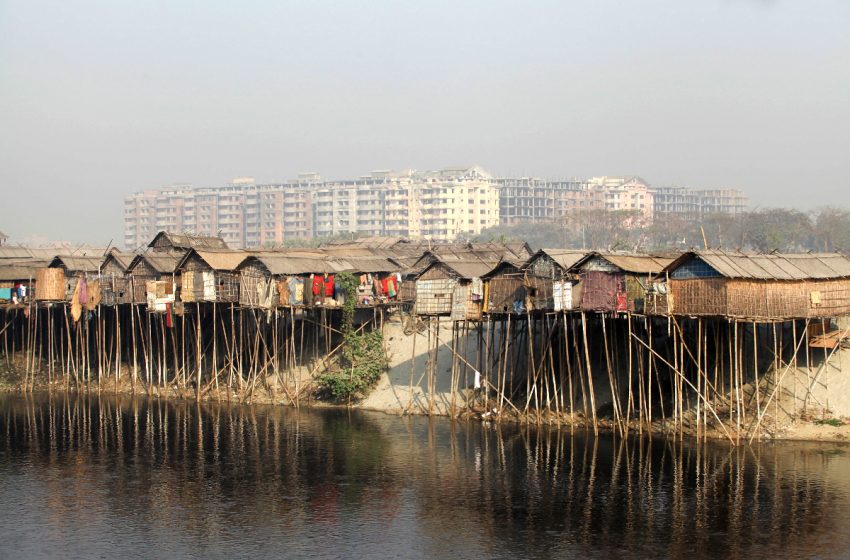
COVID-19 is boosting inequality but government policies can help
The pandemic has worsened inequality on many fronts. Pro-active macroeconomic policy combined with labor retraining programs and increased social protection are needed.
The COVID-19 pandemic is exerting a diverse impact across Asia and the Pacific’s economies, heightening concerns that the crisis may have wide-ranging economic and social consequences leading to increased inequality. Policy action is needed to address this issue.
Developing Asia continues to display varying degrees of economic robustness to the COVID-19 shock, giving rise to an uneven recovery across economies. These divergences in growth paths are reflected in where GDP levels will be in 2022. In the region as a whole, GDP next year is expected to be 2.5% below the prepandemic trend. But the gap varies substantially across subregions.
Uneven recovery patterns leading to worsening inequality have also become visible within economies. For instance, there is growing evidence that micro-, small- and medium-sized enterprises in the region are bearing the brunt of the crisis through liquidity shortages and supply-chain disruptions. In the labor market, the crisis is having more adverse effects on workers penalized by lower employment protections—in particular, those who are younger, less educated, or both.
Furthermore, job and income losses due to the pandemic have affected women more severely, undoing decades of progress on gender equality. Systemic gender inequalities that limit women’s access to education, health, and labor markets are being aggravated by the COVID-19 pandemic, and could play a significant role in prolonging the economic fallout on women.
During the pandemic, women tend to be more exposed than men to frontline occupations—e.g. the majority of nurses are women—and, in many societies, the intra-household allocation for online classes is likely to favor boys over girls due to dwindling income. Moreover, working mothers are seeing larger reductions in work hours and larger job losses, in part due to the greater share of time they spend on unpaid household work.
Rising inequality is problematic for many reasons. From an economic standpoint, excessive income inequality harms economic growth through several channels. For instance, it leads to lower consumption spending and a reduction in investment in physical capital. Inequality is also associated with underinvestment in human capital by individuals on the lower end of the income spectrum—especially in economies lacking good-quality and affordable education systems.
Wealth inequality often goes in tandem with higher financial instability, higher household indebtedness, and more frequent asset price bubbles—especially in economies driven by a dominant financial sector. From a social perspective, high economic disparity can also fuel crime, cause political instability, stifle social mobility, and corrupt politics.
Several policy options are available to address COVID-19-related inequality.
Labor policies, such as retraining programs for displaced and unskilled workers, can encourage mobility toward booming sectors and away from contracting ones. For instance, retraining programs providing IT skills—such as computer programming, web design and software engineering—will facilitate labor flows toward the rising technology-intensive ICT sectors.
These programs will also serve the long-term goal of reducing skills mismatch in the labor market and encouraging upward mobility of the low-skilled workers, thus lowering wage-earning inequality over time. Policy measures such as these are likely to have maximum economic viability when they are short-lived and granular, focusing on the specific skills required in growing sectors in the local economy. Close collaboration with local businesses to identify labor skills in high demand is necessary.
Policy responses to lessen the adverse economic impact on women, which could have persistent effects on female earnings potential, are also needed. Children and elderly care facilities and other forms of targeted social protection can be expanded to support women. Cash transfers to aid unemployed working mothers and measures to sustain female entrepreneurship—e.g., by facilitating access to credit for female-run small scale enterprises—can also help mitigate the disproportionate negative impact of the pandemic.
Fiscal policy should also play an important role to promote a more equitable society by, for example, extending social protection—such as via targeted transfers—and, more generally, by structuring tax and public spending allocations in ways that would yield more progressive redistributive effects.
Specifically, the COVID-19 crisis calls for governments to commit significant resources to revive the economy with generous fiscal stimulus packages—especially considering evidence indicating that fiscal multipliers are higher during recessions and when liquidity expansion from printing money is constrained by the already very low nominal interest rates.
Monetary policy should not only remain accommodative given the COVID-19 pandemic but also strive to be transparent, systematic, and lucidly communicated to avoid surprises that may unfairly impact the disadvantaged.
The COVID-19 pandemic has worsened inequality on many fronts. Pro-active macroeconomic policy combined with labor retraining programs, social protection, and gender-specific policies are among the essentials needed to address the gaps.
This blog post is part of a series by the Asian Development Bank and Thinking Machines Data Science, Inc.















